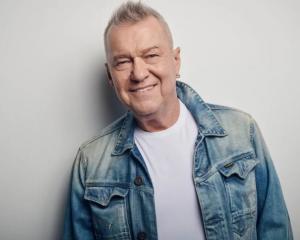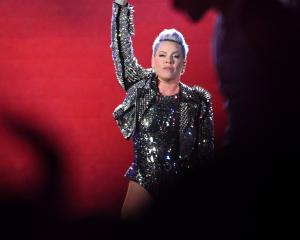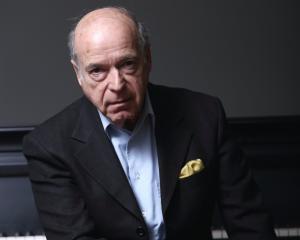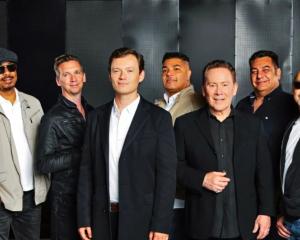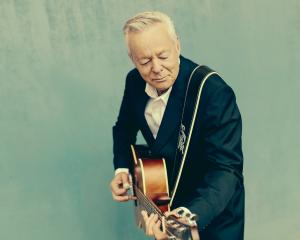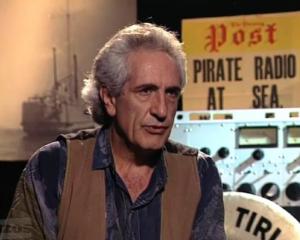
When Carly Rae Jepsen wrote Call Me Maybe, Billboard's "greatest chorus of the 21st century", she was aiming for a sense of "childish excitement".
It's how she writes much of her pop - as she puts it today, "I want to feel I'm on the top of a mountain with Beyonce-wind in my hair and I can fly for a second."
Jepsen is one of pop's more intriguing characters. When Call Me Maybe entered the Hot 100 in her home country, Canada, seven years ago, she thought she'd made it. Then Justin Bieber heard the impossibly catchy track, filmed himself and Selena Gomez lip-syncing to it, tweeted the video, and it was viewed 76million times. The song mutated into countless cover versions: even Colin Powell sang a creaky version on live TV. In the video for Jepsen's follow-up hit, I Really Like You, Tom Hanks lip-syncs to her words and they dance together, a preposterous and happy pairing like Beauty and the Beast. There followed a mashup version of that track, made from Nick Clegg speeches.
Jepsen quickly became one of the most-memed popstars in the history of social media. There was the tumblr campaign to give her a sword, and make her look like Joan of Arc ("I like her and I think she should have one" the poster deadpanned). There was a tweet about why she was better than Mozart ("Carly: writes her own lyrics/Mozart: no words in songs"). Less glossy and styled than other stars of the Los Angeles song machine, she is endearingly more Cyndi Lauper than Katy Perry.
We meet in London's King's Cross. She's come from LA "but I had jet lag on my side in a weirdly wonderful way" - she woke at 3am, and went for a run round east London as night was clearing. Her words tumble out - but there is a science in what she says. On the new album, one bubbly, tropical love song rolls out after another. Ask her how to make a hit and she'll say: "Well, there's the build, the pre's, the anticipation, the explosion, the pulses, the celebration - but it's not necessary to lock that formula in your head."
Alongside the enthusiastic technical talk she is marked out by a certain innocence. When I read back a memorable lyric from the new album about helping a man get to sleep ("Like pressure points/my love can ease him in my hand") she actually blushes. The song is about Popeye, she says; she and her co-writers, all musical-theatre nerds, were discussing the hidden hooks in Robin Williams' 1980 film version. They liked the idea of adapting Olive's song He Needs Me. What if they "funked it out", wrote a pre-chorus around the concept, and changed it into a sexy song about the great spinach eater?
Her people told her that Disney would never license the track. So she drove to Disneyland with a fake contract for Mickey Mouse, got the mouse to sign it, then sent a photo to her record label who got on to Disney and pushed it through. It wasn't the first fake contract she'd made that worked. At 9, she wrote one for her parents in Mission, British Columbia, promising to buy them a house by the sea when she grew up - which she did, recently, with the proceeds of her big hit. Jepsen gets stuff done via slightly magical methods. She dealt with the inevitable pressure of trying to follow Call Me Maybe by playing Cinderella on Broadway - just to challenge herself.
Her third album, Emotion, didn't sell much - but the critics liked it. Play your cards right, of course, and one big song will bring in sufficient money to finance the most obscure of albums. "A hit gives you artistic freedom," she agrees.
Jepsen wrote her first song at 9 - a "terrible protest song" called They're Cutting Down the Big Trees. Her first love song, Dear You, came when she was 17. It began as a letter, but when she read it back to herself, she heard a cadence and a melody: "We were younger than our age, very shy," she says. "We were slow-movers. It was a big deal to hang out, share songs and have a kiss."
Even the way she talks about it now is romantic. She has a knack for capturing the beginnings of love - like early Taylor Swift, she can sell a teenage feeling to a 9-year-old child, or to a jaded adult. But there's a science to love, too. "The butterflies stage doesn't stop happening as you get older," she says. "In fact, it intensifies as you realise how present you should be, because it's not going to last. You are more awake for it. Which makes it bittersweet."
Her parents, both teachers, divorced when she was a child, and moved in with new partners.
"I found an early fascination with the houses I grew up in, such different homes, my dad's and my mum's, and witnessing those couples," she says. "I've always been hyper-aware of the feelings in those households: four unique people, all strong in their own identities."
Love and music became intertwined.
"When I'd listen to songs, I'd end up feeling for the artists to such an extent that it would bring me to tears if I imagined too much about them," she says. Her parents, who remain friendly, still shared a love of James Taylor - so she'd listen to him. Her mother would sit her down with a little wine glass full of juice and ask her what she thought Leonard Cohen's song Famous Blue Raincoat was about.
"We had all these conspiracies: Jane was definitely in love with this guy, not that guy." They still play the lyrics game when she goes home.
You get the sense that one of the biggest challenges she has faced is overriding a natural shyness, whether with her image or industry politics. She argued not to appear in close-up on the cover of her new album, Dedicated, which instead shows her back.
"I don't love the way that in pop music, your body and face seem to be a big selling point," she says.
"I told them, I'm 33, I've had years of putting my face on stuff. I want it to be purposeful. I'm not wanting to hide away but image can be everything for some artists, and I thought, `God, I can't compete with that'. I feel more confident in my age and my weirdness now, and the fact that my fashion doesn't really have anything to do with what's fashionable. Now, I might make a bad outfit choice, but at least it's me making the decision."
- Guardian News and Media



